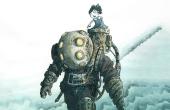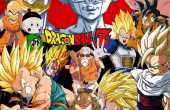Sunni Rashad
She/They Black Queer writer currently living abroad. Working on games and making art.
Correspondent III
- Plebian Penman
- Common Writer
- Aristocratic Author
- Noble Scribe
- Lurker
- Pssst
- Hand Raiser
- Vocal
- Outspoken
- Extrovert
- Sharp-Eyed Citizen
- Town Watch
- Detective Deskman
- Penman Patrol
- Forensic Fiend
- Strategy
- Console
- Actor
- Producer
- Otaku
- 8-bit Hero
- EVO Champion
- Article of the Month
- ?
- Articles
26 - Featured
17 - Comments
312
- Ext. Comments
126 - Processed
187 - Revisions
150
- Topics
50 - Topics Taken
12 - Notes
52
- Topics Proc.
280 - Topics Rev.
148
- Points
6708 - Rank
6 - Score
5215
Latest Articles
Latest Topics
Victoria 3: Marxism simulator?Depictions of the ideology of Karl Marx and Fredrick Engels are lacking in the world of video games. Many critics of Marxism have at best a child-like understanding of the term often reducing it to a string of buzzwords and malformed propagandist talking points. As a result most games that feature any sort of Marxism, Socialism, or Communism, end up regurgitating the same played-out tropes. "No food, no freedom, all leaders are dictators" One game that avoids the typical negative stereotypes of Marxism is "Victoria 3." In this grand strategy video game, players can explore and implement socialist policies inspired by Karl Marx and Friedrich Engels. By prioritizing workers' rights, collective ownership, and economic planning, the game allows for a nuanced exploration of Marxist principles, demonstrating their potential benefits while navigating the associated challenges. How does "Victoria 3" provide a balanced and respectful depiction of Marxist ideology compared to other video games? |
Saltburn and the fear of the poorSaltburn (2023) was one of the biggest viral films on Tiktok for it's numerous shocking scenes, excellent cinematography and catchy soundtrack. But one element of criticism it received was that many couldn't follow the theme of the film. |
Hatedom and the consequences of Para-Social relationshipsOnline spaces are known for the communities they attract. One unfortunate element in the modern digital era is the rise of the hater. "Hatedom" in the common parlance is the community of haters a creator attracts. This perversion of the fandom space into a space of toxic hatred has contributed to numerous creators abandoning their respective fields online as it becomes more trouble than it's worth for them. Some examples for the writer are Vivziepop, creator of "Helluva Boss" and "Hazbin Hotel"
|
What's Beef: An analysis of the evolution of rap fueds.Since the genesis of the genre rap beef has been endemic. From the Bridge is Over to Not like us the evolution of rap beef has witnessed numerous escalations. From the legendary tragic clash between Tupac and Biggie to the slanderous and venomous beef of Jay Z and Nas, and even more recently, the heated rivalry between Kendrick Lamar and Drake. These conflicts have not only been characterized by intense verbal attacks and lyrical jabs, but have also seen an escalation in the level of slander and even physical violence. Many beefs have ended with the death or deaths of the participants. While the participating musicians have used their music as a forum to air their complaints, they have also engaged in a verbal sparring match that frequently goes beyond simple amusement. What changes have occurred in rap beef? Have fans grown too accustomed to the increasing demise of artists? Beef has captured fans' attention while also illuminating the nuanced relationships within the hip-hop scene. When creative rivalry blends with personal rivalries to produce a spectacle that transcends the music itself, where is the line drawn? |
Knuckles is Black: Racial coding in video gamesKnuckles the Echidna, a prominent character in the Sonic the Hedgehog franchise, has often been associated with the African American/ Black racial identity due to his distinctive design and personality traits. Not to mention his various theme songs in the games. For this article the writer should delve into the nuanced discussion surrounding Knuckles' racial representation within the Sonic universe. They can explore the cultural significance of Knuckles being portrayed as a strong, independent character with traits that some interpret as reflecting aspects of Black identity. Consider the implications of racial representation in gaming, including themes of diversity, stereotypes, and the importance of authentic representation. Reflect on how Knuckles' character resonates with audiences and contributes to broader conversations about race and representation in popular culture. |
Starship Troopers and 9/11Paul Verhoeven's sci-fi action film "Starship Troopers" has long been celebrated for its satirical take on militarism and fascism. However, some critics have proposed an intriguing reinterpretation of the film in the context of the post-9/11 era. The writer could examine how the film's themes of propaganda, military intervention, and the dehumanization of the enemy resonate with the post-9/11 political climate in the Western world. Analyze specific scenes and narrative elements that parallel events and attitudes surrounding the 9/11 attacks and the subsequent "War on Terror." Consider the implications of viewing "Starship Troopers" through this new lens, including its commentary on nationalism, surveillance, and the erosion of civil liberties in the wake of a national tragedy.
|
The disappearance of TenchuTenchu was a franchise of ninja games first released on the Sony PlayStation in 1998. The franchise went on to publish 9 games but the cultural legacy of them seems to have been almost completely forgotten. The final release was in 2008. |
Super Mario Bros. Z and the cultural impact of crossover in the digital age"Super Mario Bros. Z" (SMBZ), created by Mark Haynes (Alvin-Earthworm), is a fan-made web series that masterfully blends the Super Mario and Sonic the Hedgehog franchises into a dynamic, nostalgic crossover. Initially released on Newgrounds, SMBZ captivated audiences with its complex storytelling, deep character development, and innovative sprite animation, all while navigating intellectual property challenges. This series not only spurred a vibrant fan community but also inspired numerous other fan projects, highlighting the significant impact of fan creativity on the media landscape. Writers can explore the cultural significance and technical achievements of SMBZ, its role in shaping fan-made media, and its enduring legacy in the context of nostalgic reimaginings and crossovers. |
Latest Comments
| American Dreamz: Apolitical, political satire | |
As someone who was never a FF girlie, I love seeing the passion from fans of the series even if I can’t get into it myself. That said I think this exploration of the subseries remake was so thorough I might need to go ahead and add it to my backlog. | Examining Final Fantasy VII's Remake and Rebirth: A Living Legacy |
Not even an allegory, just a horde of chaos and death. Like, I know we’re talking about systemic racism, but also,Death Dragon of Doom so… ya know bigger picture. | On City Elves, the Problem With Fantastic Racism in Dragon Age |
That’s actually closer to mages. | On City Elves, the Problem With Fantastic Racism in Dragon Age |
Should not be promoted? Even if it’s a condemnation? | On City Elves, the Problem With Fantastic Racism in Dragon Age |
Working on the difficulty in games article project. | On City Elves, the Problem With Fantastic Racism in Dragon Age |
It is a good movie. Personally, a fan of Mortal Remains and the titular vignette. | "The Ballad of Buster Scruggs" and the nature of Death |
Hey there, I hadn’t seen any analysis of it being humorous. That sounds pretty harsh. As far as ableism, I see the argument but at the same time, I’m not so sure about it. It’s a story about a disabled person who is the meal ticket for a presumably abled-bodied / neurotypical person. It doesn’t attach morality to the disabled person. Still, it does objectify him as strictly a meal ticket for someone but is that ableist in a morality tale about selling your companion for a quick buck? | "The Ballad of Buster Scruggs" and the nature of Death |








It had some moments.